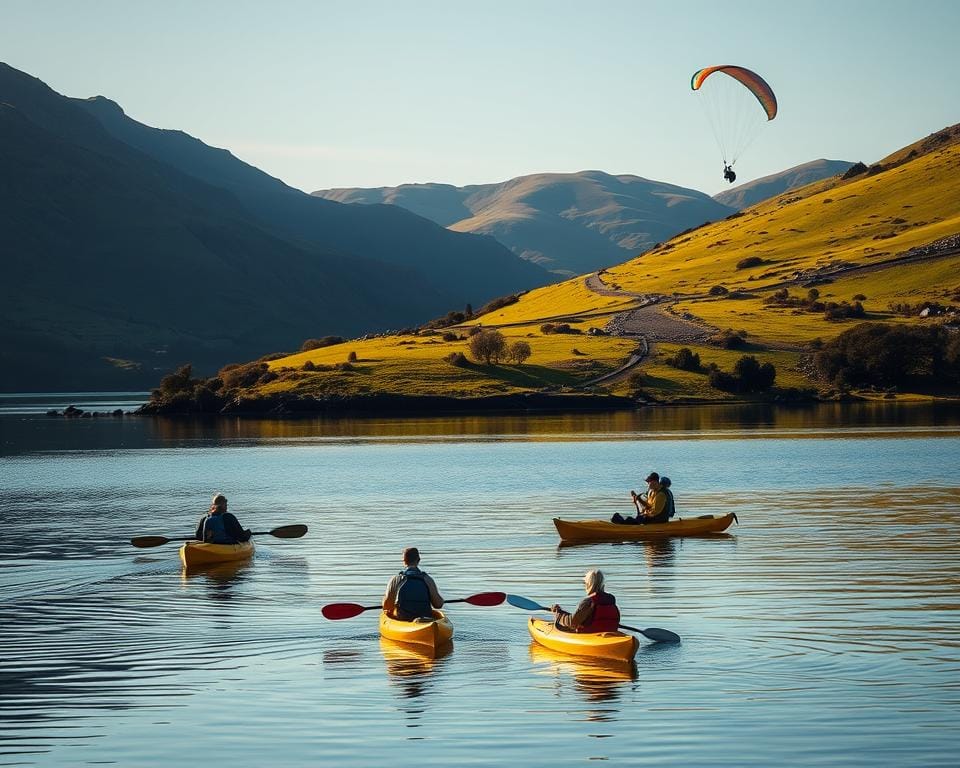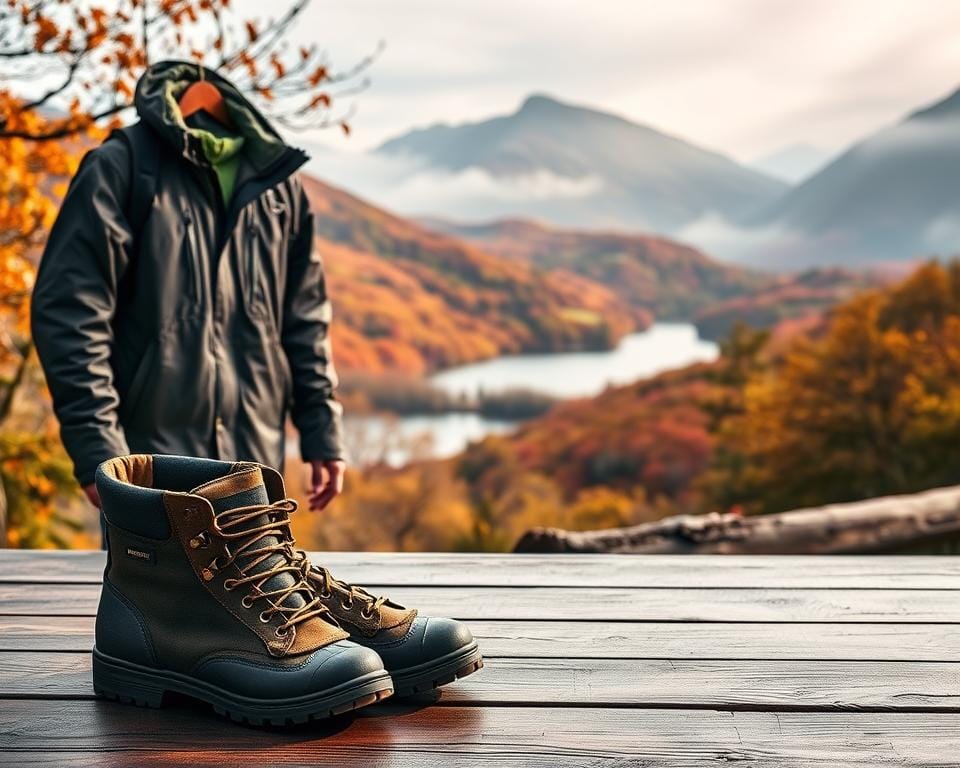Deciding when to explore the Lake District can feel overwhelming, but trust me – every season here has its magic. Whether you’re craving sunny hikes across fells, cosy pub lunches by crackling fires, or misty mornings mirrored on tranquil waters, timing your trip right unlocks unforgettable experiences. After years of wandering its valleys and villages, I’ve discovered how to match your priorities with the region’s ever-changing moods.
This guide isn’t just about weather charts (though we’ll cover those too). It’s about blending practical local insights with the area’s natural rhythms. You’ll learn how to dodge crowds in peak months, find hidden gems during quieter periods, and soak up the dramatic beauty that makes this national park special. From vibrant spring blooms to frost-kissed winter trails, let’s unravel what each season offers – and how to make it work for you.
Key Takeaways
- Each season showcases distinct landscapes and activities, from summer boating to autumn foliage walks.
- Peak visitor months (July-August) offer warmer weather but busier trails and higher accommodation costs.
- Shoulder seasons (April-June, September-October) provide milder conditions with fewer crowds.
- Winter brings peaceful retreats and lower prices, ideal for cosy breaks despite shorter daylight hours.
- Microclimates across the region mean weather can vary significantly between valleys and peaks.
- Local festivals and seasonal produce markets add cultural depth to your visit timing.
Understanding the Lake District’s Allure
Stepping into the Lake District feels like opening a well-loved book – familiar yet full of surprises. It’s where jagged fells meet glassy waters, and every footpath whispers tales of Wordsworth’s daffodils or Beatrix Potter’s woodland creatures. This isn’t just scenery – it’s a living postcard that reshapes itself with each season.
Why the Lakes Inspire Me
I’ll never forget my first sunrise at Buttermere. Mist curled off the lake like steam from a teacup, revealing golden slopes dotted with Herdwick sheep. Moments like these make visiting Lake District valleys feel like discovering hidden chapters in nature’s diary. Whether I’m scrambling up Catbells or sketching wildflowers near Grasmere, the landscape constantly reinvents its beauty.
The Blend of Travel, Food, and Lifestyle
What truly defines this region is how adventure and indulgence intertwine. After a morning hiking Helvellyn, nothing beats tucking into Grasmere gingerbread or Cumbrian lamb hotpot by a pub’s crackling fire. Local chefs transform foraged berries and Lakeland cheeses into edible poetry – each bite echoes the beautiful time you’ve had exploring.
My favourite memory? Sipping damson gin at a Keswick market stall while chatting with the maker about her grandmother’s recipe. It’s these flavour-filled moments that turn a simple visit lake trip into a story worth retelling.
Seasonal Highlights: What Each Time of Year Offers
Watching the Lake District shift its colours feels like flipping through a painter’s sketchbook – each page reveals new textures and moods. My boots have crunched over frost-laced trails and squelched through meadows bursting with life, teaching me how to lean into each season’s rhythm.
Spring’s Bluebells and Easter Egg Hunts
April transforms the valleys into a patchwork quilt of daffodils and bluebells. I once stumbled upon Rannerdale Knotts’ cobalt carpet while chasing lambs – now I time visits for late April’s peak bloom. The National Trust hosts whimsical Easter egg hunts at Allan Bank, where kids trade chocolate prizes for woodland clues.
Pro tip: Pack waterproof trousers. Those picture-perfect meadows often hide soggy surprises!
Autumn Colours and Cosy Pub Evenings
Come October, the fells erupt in russet and gold. My favourite ritual? Hiking Tarn Hows at dawn, then warming up with sticky toffee pudding at a cosy pub. The Drunken Duck near Hawkshead does a mean mulled cider beside stone fireplaces.
Don’t miss Grizedale Forest’s sculpture trails – bronze artworks peek through amber leaves like hidden treasures.
While summer brings outdoor theatre to Wray Castle’s lawns, I prefer September’s quieter charm. The National Trust gardens at Sizergh Castle glow with late hydrangeas, perfect for lazy picnics without the crowds.
Best Time to Visit the Lake District
Timing your trip here dances between chasing sunshine and syncing with local celebrations. I’ve learnt through soggy sandwiches and surprise heatwaves that weather patterns here play by their own rules – but some months offer better odds.
Weather Patterns and Seasonal Peaks
June through August gifts the most reliable sunshine, with 18°C averages and long evenings perfect for lakeside strolls. But pack a raincoat – I’ve been caught in downpours even in July! For crisp days with golden light, late September to October shines. Pro tip: check felltop webcams before hiking – microclimates mean Borrowdale could be sunny while Langdale drowns in mist.
Local Festivals and Cultural Events
The region truly comes alive during its festivals. February’s Keswick Film Festival transforms cosy cinemas into indie hubs, while July’s Carlisle Beer Festival pairs local ales with folk music. My favourite? The November Victorian Fayre where steam trains chuff past stalls selling spiced cider.
Planning around these events adds magic, but book accommodation early. Those chasing both sunshine and culture should target May or September – you’ll dodge summer crowds while enjoying milder weather and harvest celebrations.
Planning Your Itinerary: Activities and Outdoor Adventures
Crafting your Lake District adventure is like weaving through nature’s tapestry – every thread offers new textures. I’ve spent years mapping trails and testing waters, learning how seasonal shifts transform experiences. Let’s unpack how to blend hiking highs with watery wonders.

Hiking Breathtaking Trails
My boots always lead me to Helvellyn’s Striding Edge in early autumn. The scramble rewards with 360° views stretching to Scotland – but only when morning mists clear. For gentler walks, Tarn Hows’ circular path dazzles in May with mirror-like waters reflecting blossoming hawthorns.
Three essentials for fell walks:
- Grippy boots (those slate paths get slick!)
- OS Explorer OL6 map
- Kendal mint cake for energy boosts
Boating, Wild Swimming and More
Nothing beats paddling Derwentwater at golden hour, when the fells glow like embers. Hire rowboats from Keswick Marina between June and September for calm conditions. Brave souls can plunge into Buttermere’s icy pools – I prefer late August dips when the water’s less shocking!
Top watery adventures:
- Stand-up paddleboarding on Windermere (avoid weekends)
- Steam yacht cruises from Bowness Pier
- Ghyll scrambling in Langdale’s waterfalls
Balance action with lazy pub lunches. The Old Dungeon Ghyll’s beer garden makes perfect post-hike fuel stops. Remember – microclimates mean showers can surprise, even in summer. Pack that waterproof!
Weather Patterns and What to Expect
Predicting conditions here feels like playing chess with nature – you need strategy and flexibility. The region’s average temperatures swing from chilly 2°C winter lows to pleasant 19°C summer highs, but microclimates create dramatic variations within miles. I’ve learnt through experience that packing for four seasons in one day isn’t just a saying here – it’s survival wisdom.
Dressing for the Dance of Seasons
April to June brings 8-15°C days perfect for layering – think merino base layers and waterproof shells. July and August might hit 19°C, but sudden showers mean quick-dry trousers stay in my rucksack year-round. My golden rule? Check the Mountain Weather Information Service (MWIS) before heading out – their fell-specific forecasts have saved me from whiteouts on Scafell Pike.
Winter demands serious gear. December through February sees valley average temperatures of 1-6°C, but wind chill on peaks can plummet to -10°C. I never hike without thermos flasks and insulated gloves during these months. Conversely, September often surprises with balmy 16°C afternoons – perfect for impromptu wild swims.
Three essentials I always pack:
- Foldable rain jacket (even in summer)
- Moisture-wicking base layers
- Sturdy hiking boots with ankle support
Pro tip: Bookmark MWIS and BBC Cumbria Weather on your phone. These tools help snag glorious weather windows between showers – I’ve enjoyed cloudless hikes in November thanks to their updates!
Timing Your Visit During School Holidays
Navigating school holidays here requires local knowledge – I’ve learnt through trial and error when valleys hum with energy and when they sigh with quiet. English school breaks follow predictable patterns, but clever timing lets you dodge the busiest crowds while still soaking up festive atmospheres.
Understanding English School Holiday Trends
Peak periods cluster around summer (mid-July to early September), Easter fortnight, and half-terms in February, May, and October. Accommodation prices spike, and popular trails like Catbells become procession routes. My golden rule? Avoid the first and last weeks of summer holidays – these see the heaviest footfall.
Quieter slots emerge during late May or early June, when most schools are still in session. I’ve enjoyed empty paths around Buttermere during these weeks, though some family-friendly attractions open shorter hours.
Balancing Crowds With Hidden Escapes
Weekdays always trump weekends – even in peak season. Arrive on a Monday, and you’ll find Grasmere’s gingerbread shop queue halved. For guaranteed solitude, head to western fells like Ennerdale. Its remote trails feel worlds apart from Windermere’s bustle.
Three strategies I swear by:
- Book accommodation in lesser-known villages (Askham or Broughton Mills)
- Target rainy days for museum visits – the Puzzling Place in Keswick empties when showers hit
- Rise early – having Latrigg Fell’s summit to yourself at dawn beats battling midday crowds
Remember, some vibrancy enhances trips. Saturday markets in Ambleside or Ulverston burst with local charm worth braving the masses for. It’s about picking your moments – and knowing where to retreat when you need breathing space.
Unique Local Events and Festivals
The Lake District’s calendar thrums with celebrations that turn quiet villages into vibrant hubs of community spirit. Beyond the fells and waters, you’ll find local events where farmers, artists, and families share traditions passed through generations. These gatherings reveal the region’s heartbeat – equal parts rugged charm and warm hospitality.
Seasonal Markets and Community Celebrations
November sparks magic at Ambleside’s Christmas Market, where wooden chalets sell spiced gingerbread and hand-turned bowls. I always grab a mulled wine and watch children pet Fell ponies draped in tinsel. Come district summer, Hawkshead Farmers’ Market bursts with damson jams and Herdwick wool crafts – arrive early for the best local cheese.
Don’t miss quirky village traditions. The Grasmere Rushbearing Festival in July sees floral processions honouring Wordsworth’s legacy, while Ulverston’s Dickensian Festival transforms streets into Victorian wonderlands. My top tip? Check parish noticeboards for pop-up events like Coniston’s Bluebird Boats Day, celebrating speed records on the season lake.
Smaller communities shine brightest during local events. I’ve joined impromptu ceilidhs in Ennerdale barns and tasted wild garlic pesto at Eskdale’s spring market. Whether you visit during district summer fetes or frosty winter fairs, these gatherings offer authentic slices of Cumbrian life you won’t find in guidebooks.
Practical Packing Tips for Variable Weather
Packing for the Lake District means preparing for four seasons in one afternoon. Locals joke you’ll need sunscreen and an umbrella before breakfast – and they’re not wrong. Through trial and soggy error, I’ve mastered the art of staying comfortable when clouds roll in unexpectedly.

Must-have waterproofs and layers
Your rucksack needs three heroes: a waterproof jacket with taped seams, quick-dry trousers, and merino wool base layers. I learned this the hard way when July sunshine vanished into hailstorms on Skiddaw. Guides recommend packing for temperatures 10°C colder than forecast – valleys can feel balmy while fells bite with wind chill.
For autumn winter trips, add these essentials:
- Insulated gloves (touchscreen-friendly for photo stops)
- Fleece-lined neck gaiter
- Waterproof over-trousers that pack into fist-sized bundles
During colder months lake district walks demand thermal socks and spare pairs. My go-to combo? Thin liners under hiking socks – prevents blisters and keeps toes warm. Remember, weather shifts faster here than a fellside sheep dodging rain. Layer up with zipped fleeces you can shed quickly when sun breaks through.
Local outfitters swear by the 20% rule: if there’s a 20% chance of rain, assume it’ll pour. Stick that compact umbrella in your daypack – you’ll thank me when sudden showers hit Coniston’s shores. With the right gear, even winter hikes become adventures rather than endurance tests.
Exploring Local Villages and Countryside
Discovering the Lake District’s hidden towns villages feels like being let in on a cherished local secret. While honeypot spots buzz with visitors, quieter corners preserve authentic Cumbrian charm. My favourite afternoons involve losing myself down single-track lanes where stone barns outnumber people.
Discovering hidden gems off the beaten track
Eskdale Green stole my heart years ago. This valley hamlet hides a 17th-century watermill turned tearoom – their scones with damson jam justify the winding drive. Further west, Boot village offers empty trails to Stanley Ghyll Force waterfall. I’ve spent hours sketching its mossy rocks while sheep graze nearby.
Three lesser-known villages worth detouring for:
- Askham: Rose-covered cottages and Lowther Castle’s secret gardens
- Broughton Mills: Ancient packhorse bridges over the Lickle River
- Hawkshead Hill: Panoramic views without the coach groups
Navigating these areas requires Ordnance Survey maps and curiosity. Look for footpaths marked with wooden fingerposts – they often lead to surprises like hidden tarns or friendly farm shops. I once followed a “public bridleway” sign near Coniston to a family-run cheesemaker’s barn.
The magic lies in slowing down. Chat with growers at Ulpha’s village hall market, or join locals feeding ducks in Staveley’s mill pond. These towns villages remind me why Cumbria’s soul lives not in landscapes alone, but in the warm “alright?” exchanged between walkers at muddy gates.
Where to Find the Best Cafes and Pubs
Raindrops pitter-pattering on leaded windows? That’s your cue to seek out the Lake District’s snug eateries. These havens offer more than shelter – they’re where crackling fires, steaming mugs, and Cumbrian banter weave their magic. After years of ducking into doorways during sudden showers, I’ve discovered spots that turn dreary days into cherished memories.
Cosy retreats for rainy days
The Drunken Duck near Hawkshead embodies Northern hospitality. Squeeze into their oak-panelled bar for venison stew paired with Barngates Brewery ales. Their window seats frame misty fells like living watercolours – perfect for pondering things to do once skies clear.
In Ambleside, Homeground Coffee + Kitchen fuels damp explorers with flat whites and cardamom buns. Their communal tables buzz with walkers swapping trail tips. Don’t miss the Kendal mint cake hot chocolate – it’s liquid courage for braving afternoon drizzles.
| Venue | Location | Speciality | Rainy-Day Perk |
|---|---|---|---|
| The Old Stamp House | Grasmere | Lakeland tasting menus | Wordsworth-inspired poetry nights |
| Kirkstile Inn | Loweswater | Herdwick lamb pies | Inglenook fireplace seating |
| Poppy Red Vintage | Keswick | Homemade Victoria sponge | Board game library |
For proper pub vibes, The Kirkstile Inn near Loweswater delivers. Their slate floors bear centuries of boot scrapes, and the log fire crackles louder than the rain. Time your visiting lake trip with their monthly folk nights – nothing beats fiddle tunes echoing off stone walls as storms rage outside.
These spots prove bad weather often reveals the region’s warm heart. Whether you’re drying mittens by a hearth or debating things to try next over crumbly cheese scones, you’ll leave richer in spirit – and possibly waistline.
Insider Advice for a Memorable Stay
Mastering the Lakes’ rhythm transforms good trips into legendary adventures. Through foggy missteps and serendipitous discoveries, I’ve learnt when to chase sunlight and when to embrace drizzle with a grin. Let’s crack the code for crafting year-round magic.
Sync With Nature’s Calendar
April’s bluebell blooms demand early starts – arrive by 8am at Rannerdale Knotts to avoid coach crowds. For golden October hikes, target weekdays after 10am when valley mists lift. Locals swear by these months lake secrets:
- February: Ice-clad fells with empty trails (pack microspikes)
- May: Herdwick lamb feasts at farm-to-table pubs
- September: Free entry to heritage sites during Cumbria Culture Week
Flexibility beats rigid plans. I’ve swapped soggy ridge walks for cosy afternoons at Blackwell Arts and Crafts House – their scones justify any weather detour. Check village noticeboards for seasonal gems like Borrowdale’s sheepdog trials or Coniston’s wild swimming festivals.
My golden rule? Pack binoculars year-round. You’ll spot red squirrels in Whinlatter Forest or stargaze at Ennerdale’s Dark Sky Reserve when clouds part. These moments define Cumbria’s charm more than any sunshine guarantee.
However you guide visiting priorities, let the landscape lead. Some of my favourite memories started as rain-soaked plan Bs – like helping a farmer rescue sheep near Eskdale. That’s the season lake district spirit no guidebook can bottle.
Conclusion
The Lakes greet you like an old friend – always changing, yet forever welcoming. Whether chasing spring’s Easter egg hunts through bluebell woods or crunching frosty trails to cosy pubs, every season paints its own masterpiece here. I’ve shared how autumn’s fiery colours rival summer’s golden hours, and why winter’s quiet magic deserves your woolly mittens.
Pack those waterproofs and curiosity. Use my tips to dodge crowds at Rannerdale’s egg hunts or snag fireplace seats after rainy hikes. There’s no checklist for perfection here – just stone walls tracing stories, steaming mugs waiting in hamlets, and fells that whisper “try this path”.
Your adventure might involve Easter egg trails at Allan Bank or photographing icy tarns at dawn. Maybe you’ll stumble upon hidden bothies or market stalls selling spiced parkin. However you wander, the Lakes will shape memories that outlast any weather forecast. Ready to write your own chapter?

